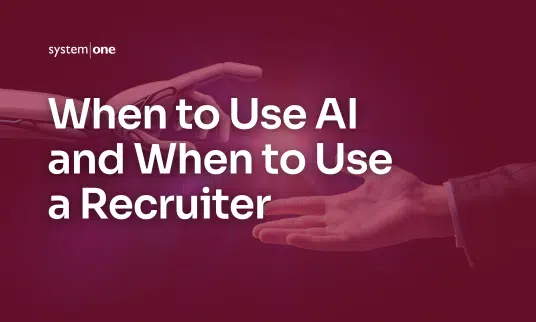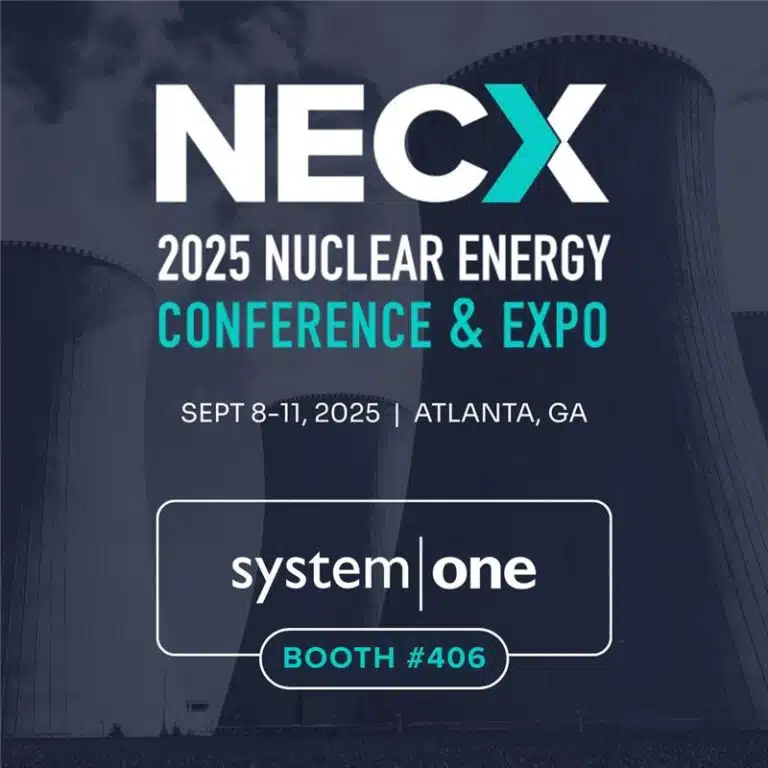How to Answer the Worst Interview Questions

Your Interview Survival Guide
Part of the interview process is answering uncomfortable questions. Questions you know the interviewer wants you to answer a certain way. Questions where you feel like you’re docked imaginary points if you answer the ‘wrong’ way.
There are a few standard interview questions that are, dare we say, harder to answer than most. We’ve compiled a list of the five worst interview questions and what your interviewers are really looking for in your answers.
What is your greatest weakness?
 It’s never a good idea to answer it with something that’s actually a strength. It makes you sound a smidge arrogant and lacking self-awareness. For this question, it’s important to be honest. Everyone has flaws. Be real about yours – but don’t feel like you can’t turn it into a positive.
It’s never a good idea to answer it with something that’s actually a strength. It makes you sound a smidge arrogant and lacking self-awareness. For this question, it’s important to be honest. Everyone has flaws. Be real about yours – but don’t feel like you can’t turn it into a positive.
👎 Here’s a bad way to answer:
“I’m such a perfectionist! I end up working sooooo hard, and I care too much about my customers.”
Why it’s bad:
We see what you’re doing there, trying to sneak in strengths as weaknesses! We aren’t looking for that – we want to know how you see yourself and what you genuinely feel you can work on.
👍 Here’s a great way to answer:
“I’ll be honest, I’ve had some issues with prioritization in the past, but I use project management software now and allot time for each of my tasks. I have worked hard to ensure this doesn’t impact my work life anymore.”
Why it’s good:
It highlights an actual weakness, what you do to mitigate it, and what you’ll do to ensure your work at this company isn’t affected. It’s genuine – and that’s what we’re looking for.
Why should we hire you?
This is your time to shine. Tell us about your biggest accomplishments and relevant skills. Make it about what you can bring the company and about your passion for the field – but also, don’t forget to mention how great the company is and why you want to work there.
👎 Here’s a bad way to answer:
“You’re not going to find a better candidate than me. I was made for this job. This is a great company and I’m excited to join it.”
Why it’s bad:
It’s not awful, but there’s zero real information there. Why won’t they find someone better than you? Is it because you have a degree in the field and five years of experience? Elaborate!
👍 Here’s a great way to answer:
“You should hire me because I have real passion for this field. Not only did I graduate early and in the top 5%, but I’m continuing my education by taking night classes. I live and breathe this field. You should also hire me because working here has been on my shortlist for years; I love how dedicated you are to X client (or X product or X charitable cause).”
Why it’s good:
You’re clearly going into detail why you are, factually, a great candidate; you’re indicating passion; and you’re showing you’ve done your research on the company by speaking directly about their clients, products, or causes they support.
What did you like the least about your last job?
Whatever you do, do not trash your past employer. Now is not the time for that – in fact, there is never a good time for that. In the grand scheme of life, it doesn’t matter if your last boss was super toxic – your interviewer doesn’t need to know that. Your interviewer doesn’t know you, and if we’re talking about first impressions, it definitely doesn’t leave a good one to spend your very limited time talking badly about a prior employer.
Instead, focus on something that didn’t have to do with the people – perhaps there was no room for advancement, or you were looking to explore a different facet of the field.
👎 Here’s a bad way to answer:
“Ugh my boss was just so awful, he micromanaged me and I just hated feeling so watched all the time.”
Why it’s bad:
Why did your manager feel like he needed to micromanage you? Was it something wrong with them, or you? Your interviewer has no way to know what really happened here, and they might just get the impression that you needed to be micromanaged because you lacked time management skills.
👍 Here’s a great way to answer:
“I liked the job, but my department was very small and there was no real room for advancement to speak of. Having been at the company for a fair amount of time, I felt it was time to move to a more senior role, and they unfortunately couldn’t provide that kind of growth.”
Why it’s good:
This answer shows that you’re interested in the natural progression of your career. It doesn’t talk badly about anyone. It keeps it very high-level – no need for a ton of details and drama.
Where do you see yourself in five years?
 That can be a tough one – we’re very rarely where we thought we would be five years ago. Life happens, right? But, generally speaking, we have a rough idea of where we want our life to go. Just make sure you focus on the career aspect and keep it in the same area as you are in. For example, if you’re in HR, don’t tell your interviewer you want to be a software developer. That’ll discourage them from hiring you since you would clearly not be a long-term fit. And maybe that’s fine and even expected in some fields, but err on the side of caution.
That can be a tough one – we’re very rarely where we thought we would be five years ago. Life happens, right? But, generally speaking, we have a rough idea of where we want our life to go. Just make sure you focus on the career aspect and keep it in the same area as you are in. For example, if you’re in HR, don’t tell your interviewer you want to be a software developer. That’ll discourage them from hiring you since you would clearly not be a long-term fit. And maybe that’s fine and even expected in some fields, but err on the side of caution.
👎 Here’s a bad way to answer:
“I’d like to be in India taking a sabbatical and just traveling for a long time.”
Why it’s bad:
Firstly, it’s not focused on your career. Secondly, you’re basically telling your interviewer that in five years, you want to be far, far away and not at the company.
👍 Here’s a great way to answer:
“Well, my general plan would be to find my ‘home’ company – the one where I spend my career at – and progress from there. I would hope that in five years, I’d be in a managerial position. I’d like to go back to school to further my education in order to achieve this.”
Why it’s good:
It’s career-focused and long-term. It shows ambition and aspiration, which are good qualities to have in an employee.
Tell me about yourself.
 This one is hard. Firstly, because it requires some self-examination, but secondly, because there’s a fine line between too much personal information and too much work talk. When we ask you that question, we do actually want to hear about more than your career. We ask plenty of questions about your career earlier or later in the interview. What we want out of this question is a good Cliff’s Notes about you – your own personal elevator pitch.
This one is hard. Firstly, because it requires some self-examination, but secondly, because there’s a fine line between too much personal information and too much work talk. When we ask you that question, we do actually want to hear about more than your career. We ask plenty of questions about your career earlier or later in the interview. What we want out of this question is a good Cliff’s Notes about you – your own personal elevator pitch.
👎 Here’s a bad way to answer:
“There’s not much to say about me… I graduated college last year and I’ve been job hunting since then.”
Why it’s bad:
It’s short, you have nothing prepared when given the opportunity to sell yourself and show if you’d be a good culture fit, and it’s all about work.
👎👎 Here’s a worse way to answer:
“I’m a proud [insert political affiliation here], I attend the Church of Cthulhu every week, I don’t believe in drinking at all, and I dislike all dogs except corgis.”
Why it’s bad:
This answer touches on topics that are way too personal. You really shouldn’t be talking religion or politics, or any other polarizing topic that can alienate others, for that matter. Keep it light and fun.
👍 Here’s a great way to answer:
“Well, I was born and raised in Canada, I lived in Australia for a year, and I love volunteering at the animal shelter on the weekend. I spend a lot of my free time helping my partner rebuild their rally car motor.”
Why it’s good:
There’s so much info your interviewer can expand on here. “Oh, you lived in Australia? Where? Tell me about the kangaroos! Oh, you volunteer at the animal shelter? Which one?! Oh, you build motors? Didn’t see that coming! What’s the make/model of the rally car?” These are things nobody would get offended about – they’re harmless conversation points that are really interesting and give an accurate picture of your personality.
--
Are there any other interview questions that leave you a bit stumped? Message us at marketing@systemone.com and we’ll help you out!
About System One
System One delivers specialized workforce solutions and integrated services. We help clients get work done more efficiently and economically, without compromising quality. For more than 40 years, we’ve built our reputation on exceptional talent, flexible delivery, and full accountability. System One’s national network spans energy, engineering, IT, commercial, scientific & clinical, legal, marketing, and beyond. System One is based in Pittsburgh, PA.
Looking for business solutions?
Explore System One

